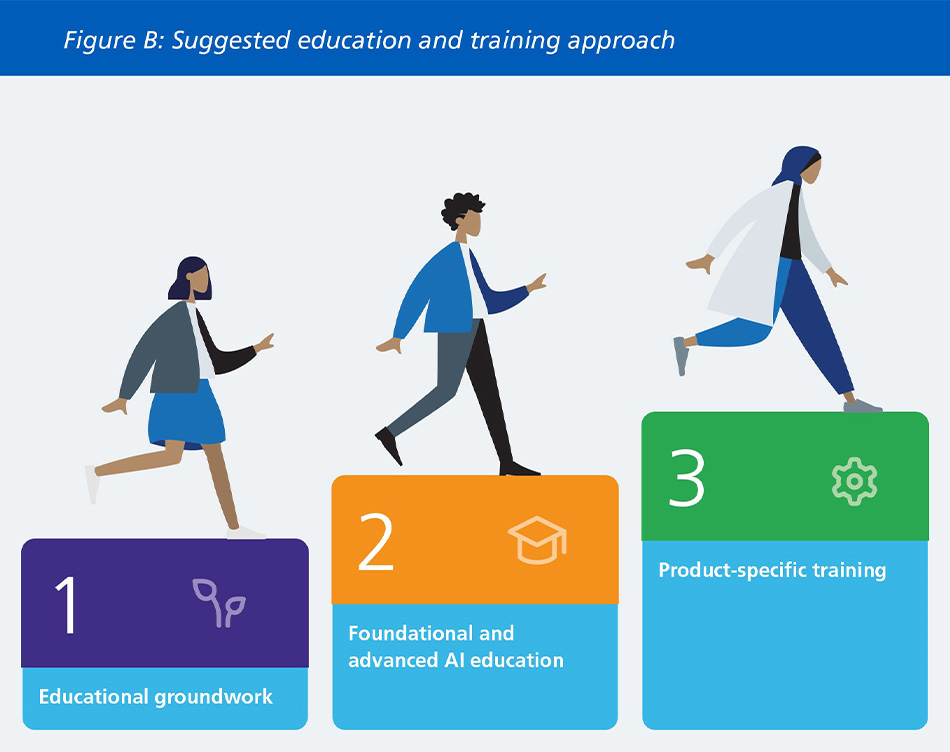Suggested educational approach
Executive summaryThe challenge is to establish the right educational approach to help build skills and capabilities across the healthcare workforce.
Educating healthcare workers to develop, implement and use artificial intelligence (AI) effectively and safely is a multidimensional challenge, involving undergraduate education, postgraduate training, and lifelong learning. The challenge is to provide the right resources to the right people and build skills and capabilities across the healthcare workforce in the most efficient and effective way possible.
This challenge demands an approach to educating and training for AI that is flexible, including a mixture of widespread acquisition of awareness and knowledge whilst also supporting specialist skills and capabilities to deploy and maintain these technologies. This means providing a solid foundation for developing AI-related knowledge as well as personalised advanced educational elements to fit the needs of individuals in different roles and responsibilities (the workforce archetypes).
Based on these observations, Figure B illustrates the suggested approach to education and training for AI in healthcare.

The suggested education and training approach outlined in Figure B is as below.
- An essential groundwork to AI education and training, continuation of the broader efforts to enable the adoption of change and innovation in healthcare settings, as well as efforts to advance digital literacy, skills, and capabilities within the workforce (such as the digital transformation pathways outlined in the NHS Long Term Plan, the Topol and Goldacre reviews, the plan for digital health and social care, and ‘Data saves lives’ strategy).
- Development and provision of general education and training for AI through: a) foundational AI education across the whole healthcare workforce, including basic AI literacy and awareness of the limitations and risks of using AI technologies b) advanced AI education that is specific to the workforce archetypes, including development of skills and capabilities.
- Provision of product-specific training for users of each AI technology during its deployment.
The foundational AI education will aim to develop awareness and knowledge in healthcare workers. Education and training at this foundational level will need to be delivered both as an accessible education programme in a scalable format to existing staff and incorporated into educational programmes for future professionals.
Workers who may take up any of the archetype roles will require this foundational education prior to any advanced education offerings.
The broad aim of the advanced AI education will be to develop in-depth understanding of, and skills related to, the subject area. This will enable healthcare workers to lead different aspects of the deployment of AI technologies in health settings and advise others.
This report lists detailed educational requirements for knowledge, skills and capabilities mapped against the foundational, advanced and product-specific pathways, the workforce archetypes and the factors that influence confidence in AI. Chapter 3 and Appendix A provide these details.
Page last reviewed: 17 April 2023
Next review due: 17 April 2024